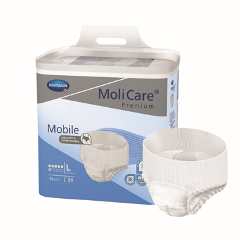Posted 7th July 2021
Lifestyle Changes for Incontinence
Types of Incontinence
- Stress
- Urge
- Overflow
- Mixed
- Reflex
- Functional
Lifestyle Changes for Incontinence
A way to help prevent the occurrence of incontinence is bladder training. This is when you schedule the amount of time between bathroom trips, helping you to decrease the number of trips you take and also helping you to improve your bladder’s capability of holding more urine.
Pelvic muscle exercises, also commonly known as kegel exercises are used to help strengthen your pelvic muscles. These support the bladder and can help you avoid the loss of urine and prevent accidents from occurring.
Another useful tip that may help includes ensuring that you are able to access your bathroom at home and that there are no obstacles or barriers in your way. Make sure that there are no obstructions and keep the door open and lights on to allow for easy access.
You may also benefit from the use of incontinence aids, in combination with other treatment options. MoliCare have a vast range of products that are highly absorbent and provide a comfortable fit for both men and women. With a range of different styles, sizes and absorbency levels – there’s a perfect fit for all incontinence needs. Their curly fibre technology also helps to maintain healthy pH levels and reduce the risk of skin irritation.
Risk Factors
- Age can be a factor as when we get older our pelvic floor muscles can become weaker and can cause the occurrence of incontinence.
- The risk of developing incontinence while pregnant or after the baby is born can increase due to the weight and pressure of the baby pushing down on the pelvic floor muscles. This can put pressure on your bladder muscle causing urine to leak out.
- Diseases such as diabetes, Parkinson’s disease and multiple sclerosis can affect bladder control due to the increased chances of damaged nerves.
- An enlarged prostate gland can be a contributor towards incontinence in men.
- A spinal cord injury can cause incontinence due to miscommunication between the brain and the nerves that control bowel and bladder function, disrupting the flow of urine.
- A urinary tract infection may also cause temporary urge incontinence, but this often clears up as the infection goes away.



It is important to seek medical advice and talk to your doctor or a continence professional about your symptoms and any treatment plans.
Visit your local Alliance Pharmacy store and chat to your pharmacy team for more information and recommendations on the best products for you.


